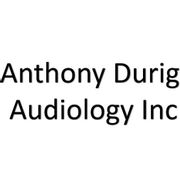
Alzheimer’s disease and other types of dementia are common conditions among aging populations, as well as a leading cause of death among Americans. While research on this type of cognitive decline continues, medical professionals have been unable to pinpoint an exact reason behind the problem. Fortunately, professionals have identified many risk factors that are associated with the condition—including that of hearing loss. If you’re concerned about either of these health issues, here’s what to know about their connection and how hearing aids can support brain health.
How Might Hearing Loss Contribute to Dementia?
It’s important to note that people with hearing loss will not always develop dementia, and those with dementia may not ever suffer from hearing loss. However, research does show that there is a strong correlation between the two conditions. There are a few different ways that a hearing impairment can contribute to Alzheimer’s disease and other forms of dementia.
For example, medical experts have found that when the ears are unable to recognize sounds, certain portions of the brain will become inactive. This inactivity may cause deterioration of brain matter, which, in turn, can lead to cognitive decline.
 Another theory centers around the social effects that hearing loss can have on aging individuals. Many seniors who become deaf will often retreat from others due to embarrassment, frustration, or fear of confusion. Over time, this isolation may deprive people of cognitive stimulation, which may increase the risk of dementia.
Another theory centers around the social effects that hearing loss can have on aging individuals. Many seniors who become deaf will often retreat from others due to embarrassment, frustration, or fear of confusion. Over time, this isolation may deprive people of cognitive stimulation, which may increase the risk of dementia.
What Can Be Done to Address Hearing Loss and Dementia?
While age-related hearing loss cannot be reversed, there are many ways that seniors can improve their sense of sound and remain connected to the world around them.
When you or a loved one is experiencing difficulty recognizing sounds or communicating with others, visit a trusted audiologist for a comprehensive hearing test. If any hearing loss is detected, your provider can outfit you with assistive devices, such as hearing aids, that make noises more recognizable. By using these, you can continue to communicate and keep your mind active, which, in turn, may help prevent dementia.
If you’re experiencing significant memory loss or confusion, it’s also important to talk to a health care provider about your dementia risk. While this condition cannot be cured, your doctor may recommend a variety of solutions to help stave off the condition—such as taking prescription medications, engaging in memory exercises, staying physically active, and eating a diet that’s rich in omega-3 fatty acids.
When you’re concerned about hearing loss, turn to the caring team at Anthony Durig Audiology in Stow, OH. Utilizing advanced equipment and techniques, this audiologist will perform in-depth hearing testing to determine if you suffer from a condition that impairs your sense of sound. If necessary, this provider can also introduce you to a wide variety of hearing aids that deliver optimal comfort and superior control. To learn more about these capabilities or schedule a convenient appointment, call (330) 688-4115.
About the Business
Have a question? Ask the experts!
Send your question

